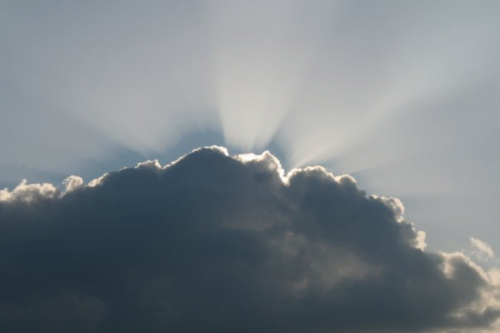Join me for a conversation with Psalm 63:1-8 . . .
Several years ago a dear friend of mine called me one day to say that she was dating someone new. The longest dinner date, she told me, turned into a dinner date the next night and they’d really been inseparable. And things got serious fast . . . already re-arranged their upcoming Christmas plans to spend the time with one another's families. While my friend sounded really happy (and so I was happy for her) the conversation jarred me.
Truthfully, it made my head spin.
But all I knew was that my friend couldn’t stop talking about her new love. I mean really talking about him. By the time I hung up the call I knew I could not only pick her fella out of a police line up if I had to, but I could write an essay on him too! I knew all about his tastes in flowers, his love of only the best ice cream (Blue Bell, she told me) and the fact that he always perfectly shinned his shoes before he left the house in the morning.
Though I was glad to listen, it almost felt like I was eavesdropping in on a private lovebirds conversation that wasn’t meant for me as she went on and on. I wasn’t in love with him, she was! But, how poetic he sounded!
In the same way as we read Psalm 63, we too might feel like we’re eavesdropping. For this Psalm presents us a conversation between two people who love each other very much. So it might feel to us a little bit awkward too.
For David speaks of a relationship he has with God. And it’s his relationship. But not ours (or is it?)
He begins by saying this about the Lord: “O God, you are my God, I seek you, my soul thirsts for you; my flesh faints for you, as in a dry and weary land where there is no water.”
Dramatic opening sentence isn't it? I don’t know if you’ve ever tried to go without liquids or water for a long period of time. But you simply can’t. Science tells us that our bodies are made up of 60% water and we can only go without for 3 days until they begin to shut down. Dehydration can seriously kill. So what a vivid point!
He can not live without God. And it’s not an intellectual pursuit. It's a pursuit of the actual presence of God.
For David feels confident in the One in whom he adores saying in verse 2, “So I have looked upon you in the sanctuary, beholding your power and glory.” May commentators say that David was actually writing from the sanctuary, otherwise known as the temple, one of the holiest place in Judaism. And possibly that David was staying up all night praying, seeking answers from the Lord. But then there are others who believe that this phrase “looked upon you in the sanctuary” was just as expression of closeness.
May commentators say that David was actually writing from the sanctuary, otherwise known as the temple, one of the holiest place in Judaism. And possibly that David was staying up all night praying, seeking answers from the Lord. But then there are others who believe that this phrase “looked upon you in the sanctuary” was just as expression of closeness.
And as a result, he’s got to get his praise on.
Verse 3: “Because your steadfast love is better than life, my lips will praise you. So I will bless you as a long as I live; I will lift my hands and call on your name.”

Bottom line: David's longings have a physical component. David can’t help but speak words about God from his mouth.
David can’t help but turn his posture in response to what the Lord has done in his life.
David can’t help but lift up his hands simply say, “Thank you, God” for giving him life.
So much so that verse 6 David goes on saying about the Lord: “I think of you on my bed, and meditate on you in the watches of the night; for you have been my help.”
I love this part of the Psalm for it’s so practical. I can just imagine David lying down on the ground and having the thoughts of God consume him making him unable to sleep. Tossing and turning filled with joy.
And it’s awesome language isn't it?
In fact, I dare say that these words of David might just overwhelm us.
Why?
Maybe in the same way as we encounter the “my new man or my new woman” is the greatest thing since sliced bread soliloquies from our friends . . . We don’t know God like David knows God.
For as much as our resume says we’ve been a member of a congregation since cradle roll . . .
For as much as our day planner says we’ve been committed to a particular church and its activities for years . . .
For as many songs we’ve sung, prayers we’ve prayed and sermons we’ve heard, we might just land in the place with Psalm 63 as our mirror and have one response:
I don’t know a God I’d thirst for in a dry and weary land where there is no water . . ..
A God I’d hunger for until my soul is satisfied with a rich feast . . .
A God I’d stay up late into the night for. . .
I don’t know a God like this.
Maybe those who do know, we believe are only the religious types like nuns or priests or pastors. Maybe it's for the more spiritual minded or expressive ones in the pews (and that's not us!).
For as many hours in my life I spent as a good church kid to the days and days of coursework in seminary and then to the years and years of full-time employment with the church—there was a moment in my life a couple of years ago where I realized I didn’t know. I too didn't know.
I didn’t know the God David speaks of.
Sure, I knew a lot of facts about God.
Sure, I knew how to lead organizations of God.
And sure, I’d committed to a relationship with God through my baptism and ordination vows years before. I voiced prayers on a weekly basis. And of course I wouldn’t have called myself anything other than a Christian. But I didn’t know. I didn’t really know.
And for this reason, I rarely preached on the Psalms. All of them sounded too much like one of those “Jesus is my boyfriend” worship songs I called annoying. Plus, so many of the Psalm felt bi-polar: “I love you God” in one verse and “God you’ve despised me to my enemies” in the second. Couldn't the Psalm writers just make up their minds already?
But through deep valleys of some of the hardest imaginable experiences in my life (the hard stuff we all go through if we live long enough), I started to read the Psalms again.
And from reading them and talking about them with friends, I uncovered a life changing truth: God of the universe, the God of all of creation, the God of all of the heavens loved me. Yes, loved me very much.
God loved me, Elizabeth Hagan.
 And when I began to “get” this . . . when I began to really get this, my only response was, “O God. You are my God. I seek you. My soul thirst for you.”
And when I began to “get” this . . . when I began to really get this, my only response was, “O God. You are my God. I seek you. My soul thirst for you.”There are really no other words (if words at all!)
When we know God loves us our bodies just want to sing with gusto, lift up our hands, and shout in thanksgiving. And we might just shed a tear or two.
In fact, this is why I believe that David ends with this particular description of God in verse 7: “For you have been my help, and in the shadow of your wings I sing for joy. My soul clings to you; your right hand upholds me.”
Do you hear the personal pronouns in this passage?
For YOU have been MY help.
I will sing for joy.
MY soul clings to you.
It's not that the larger community isn’t important (No we just have to read some of David’s other corporate Psalms to see how strongly he feels about this!) or that we don’t have acts of service to do out in the world.
BUT, David’s models for us the personal nature of knowing God. For, life with God is always about our being loved individually.
The God of the universe wants to satisfy your soul with a rich feast! Really. What an amazing invitation!
It's good news. It's really the best news of all.
A Side of God We Really Don’t Want to See: Exodus 33:12-23
a sermon preached at The Federated Church, Weatherford, OK
In all human relationships-- with our spouses, our children, our friends—there are ebbs and flows, aren’t there?
There are days when we wonder why in the world we ever got married, had kids or keep in touch with so and so from high school . . .
But, there are days when we love beyond any words we can articulate for love.
Maybe it was your wedding day. . . .
Maybe it was the morning your child was born . . .
Maybe it was that girl’s weekend when you laughed and laughed till the sun came up. . . .
If you’ve ever been there . . . if you’ve ever experienced such bliss in your life where you feel safe enough to ask your loved one for anything—then you’ll understand what is come in our Old Testament reading for this morning.
For Moses and God have quite a good thing going on too. And Moses thought he reached such a level of devotion and trust in God that he feels he could ask for the ultimate expression of intimacy with the Divine: show me all of you!
And it was true: Moses and God were pretty close. But how did this happen?
Emotional bonds to dear ones, in my experience, often grow out of conflict.
Times when either you’ve made it through what feels like the unforgivable sin, only to realize the other person is a saint enough to forgive you. Or times when everything is swirling around you and it becomes a case of you and your partner against the world.
And for Moses and God, they’d experienced both!
If we go back one chapter earlier than we read in our text for this morning, what we’ll find is the great calf incident when the conflict came.This was the scene: for many months, Moses is up on Mount Sinai having holy time with the Lord—receiving the words of the law on the tablets, written by God very own hand. Can you imagine what an amazing experience that was?
But, in Moses’ absence the people gathered at the bottom of the mountain. They talk about how lost and left out they feel. They collect all the gold they can find  in the camp and create an object to worship, in the shape of a calf, creating their own object to worship like the other religious traditions of the time. They ignore the 10 commandments (which they already had), and each man and woman does what is best in their own sight.
in the camp and create an object to worship, in the shape of a calf, creating their own object to worship like the other religious traditions of the time. They ignore the 10 commandments (which they already had), and each man and woman does what is best in their own sight.
You can imagine how well this went over when God saw what was going on and Moses came down the mountain. . . .
The divide between Moses and the people was thick in the air.
In verse 9 of chapter 32, the Lord speaks of it saying, “I have seen these people,” the Lord said to Moses, “and they are a stiff-necked people. Now leave me alone so that my anger may burn against them and that I may destroy them.”
Since there is a chapter 33, we know that the Lord’s anger does not get the final word. The people are allowed to live. But like misbehaving teenagers, God grounded them (or in Biblical terms: God sent them a plague).
You can imagine how this changed the dynamic of the relationship between God and Moses—both in God’s disappointment with the people who Moses was seeking to lead and in “you and me” against the world sort of way. Moses was truly the one human being that God could trust.
In fact, earlier than we just heard read a few moments ago, we learn that God and Moses had taken their relationship a notch or two closer together.
Moses traveled a good distance outside the camp and pitches a tent where he could be with God alone. It was the ultimate man-cave if you will. A place where Moses could revel in his beautiful relationship with the Divine without the pesky less mature human-lings able to bother them . . .
In fact, verse 9 says of the splendor of this tent: “ As Moses went into the tent, the pillar of cloud would come down and stay at the entrance, while the Lord spoke with Moses.”
Moses and God were BFFs and everybody knew it.
All was be swell, right? But let’s recap. These were not two schoolboys. It was God Almighty, maker of heaven and earth!
But, in this cloud of closeness, Moses wants even more.
“We’re so close, God” Moses says. “And I’ve done everything you’ve ever asked of me.”
“Very true.” God replies.
“So, can you promise me a thing or two?”
“What do you want Moses?”
“I want you to go with me. You—just like we are in this tent.”
And as the conversation continues, God says no. You can’t have out there what we have in this special place of meeting. But you can have my presence and peace wherever you go.
(Isn’t that something that we ought to go back to more often? God says we are never alone and can always have the Lord’s presence and peace wherever we go).
But it wasn’t enough for Moses. He asks the Lord to “Show me your glory, I pray.”
But the Lord says, “You cannot see my face; for no one shall see me and live.”
And instead, the Lord offers up his backside. It’s not what Moses wants to see. It’s not what Moses asks for. And it is a reminder of the fact that God was not just another pal.
But, wow, as many commentators of this passage relate, what God offers is more than what most have seen of God throughout the scriptures: a visual encounter. And, Moses already had a visual encounter with the Holy at the burning bush a few years back!
Humorously, Professor John Holbert of Perkins School of Theology in Dallas asks this question about the passage: “Is it possible that God is mooning Moses?”
Maybe so.
I don’t know about you, but it’s not the sight of God I’m dreaming about seeing one day—a mooning.
And we get no indication as the story continues that Moses was thrilled about it either.
I think this is the case because we are a people who like certainty. We say to our co-workers and children, “Look me in the eyes when I am talking to you.” We say to a friend telling us a story, “Are you sure those facts are true?” We say to our partners: “Are you sure that you love me the most?”
In our closest relationships, we want to know that we know that we know!
And the same is true, I think in our relationship with the Divine. We want to know that we know that we are on good terms. We want to know that we are loved and cherished. The side of God we most want to see is what is found in the light of day where all is very CLEAR!
Rev. Barbara Brown Taylor writes in her newest book, Learning to Walk in the Dark about our fascination in modern Christianity with certainty and what can  be known in the light. In fact she gives it a label saying what you find in most churches in America is “full solar spirituality.”
be known in the light. In fact she gives it a label saying what you find in most churches in America is “full solar spirituality.”
She says you’ll know a full solar church when you find because: “Members strive to be positive in attitude, firm in conviction, helpful in relationship, and unwavering in faith.”
And while it works well for awhile—I mean who doesn’t like to go to one of the Disneyland of churches everyone is so happy and helpful? It can’t be sustained and remain authentic.
Things happen like: “you lose your job, your marriage falls apart, your child acts out in some attention-getting way, you pray hard for something that does not happen, you begin to doubt some of the things you have been taught about what the Bible says.”
And in cases like this, solar spirituality churches say just pray harder, just have more faith, or trust that everything happens for a reason!
Have you been told things like this from a church you attended? I know I have.
Taylor—most helpfully though, gives us another vocabulary for what our life in communion with God can be, though it is a side of God that we don’t often want to see.
She calls it “lunar spirituality”—or learning to walk with God in the dark.
And though most of us hear the word “dark” and think, oh, that must be bad. It’s not. Darkness can be a gift of clarity. Because if we think about it—even in the darkest night there’s always some light!
 When is the last time you took a walk outside of the city limits at night? Do you remember what you saw?
When is the last time you took a walk outside of the city limits at night? Do you remember what you saw?
I’m a city girl and don’t get out much into the country in the evenings. But the last time I visited my in-law at their farm in Georgia, I can remember being overcome with the light of the stars I had not seen in a very long time. It took my breath away in fact to stop and behold the glory of the night sky, of God’s creation—that I’m usually so in a hurry to get inside for that I miss.
Taylor affirms this when says, “The way most people talk about darkness, you would think that it came from a whole different deity, but no. To be a human is to live by sunlight and moonlight, with anxiety and delight, admitting limits and transcending them, failing down and rising up. To want a life with only half of these things is to want half a life, shutting the other half away where it will not interfere with one’s bright fantasies of the way things ought to be.”
It’s as if our vocabulary of God has got to change if we really want to know the Lord! For the God of the dark nights, the God of the backside view, the God of the mysterious, who can feel so close to us in one moment and distant in the next: is who God is.
And though it might not be the God want to see—as Moses experienced it, if we follow the path of God’s kingdom, it is what it is going to be.
St. Gregory of Nyssa said, “Those of us who wish to draw near God should not be surprised when our vision goes cloudy, for this is the sign that we are approaching the opaque splendor of God.”
And while the theology of “solar spirituality” or “God is the light” are part of our journey—it’s just NOT what we’ll experience all the time.
Like in our relationships with our spouses, our children, and friends, we aren’t going to be in total harmony 100% of our journeys together, even more so with our relationship with God. There are going to be times when we are in the dark. There will be nothing we can do about it, except to sit, to walk and to learn from God there.
We learn that God is altogether not like us.
We take comfort in the fact that God is not like us—and we can’t see all of God’s glory—because the problems of our lives, of our world need a much bigger solution than any human can even wrap their brains around!
And most of all, we are transformed by a side of God that is not like us.
As we wait in the dark we are transformed by God’s grace.
We are transformed by God’s compassion.
We are transformed by God’s sovereignty.
So that as we go through the days of our lives, we aren’t so surprised when the worse possible things happen to us and when the dark nights of the soul come.
We have the capacity to believe when God says; I will send you forth with my presence and my peace. And so we go forth into the world differently, even when the darkest nights surround us.
Though this may not sound like good news to you today, church, I am going to boldly tell you that it is.
It’s good news for all of us who have found ourselves in seasons of life that we really didn’t want and bouts of sadness that just won’t go away.
It’s good news for all of us who have ever doubted our faith or wondered if we were really a Christian.
It’s good news for all of us who like to sit out at night and gaze at the night sky feeling overwhelmed by how vast this universe really is!
Sure, there’s a side of God that none of us might ever want to see, just as Moses experienced long ago, but there’s a lovingly mystery waiting to meet us in those moments when we feel farthest away!
Thanks be to God.
AMEN
[P.S. If you'd like to read the introduction to Barbara Brown Taylor's book, check it out here. Great stuff!)